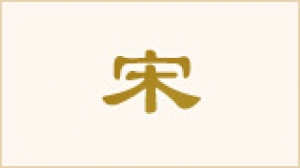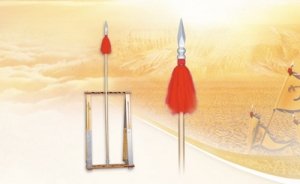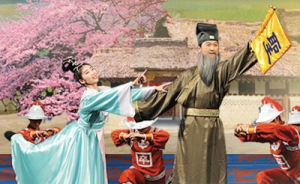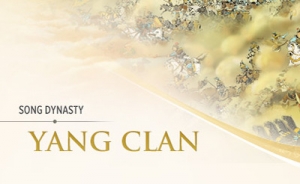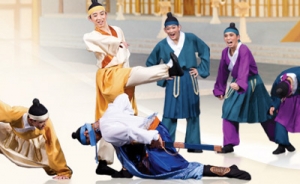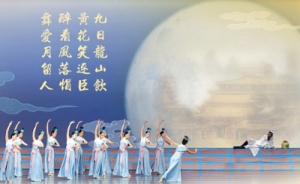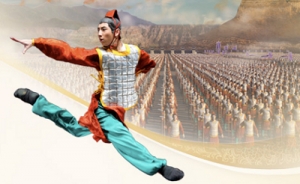The Great General Yue Fei
Yue Fei (pronounced Yweh-Fay) is one of China’s most celebrated generals. Born at the end of the Northern Song Dynasty, Yue Fei (1103–1142 C.E.) was known not only for his military successes, but also for his high ethical standards. Through ancient biographies telling his story and a temple dedicated to his memory, in Chinese lore Yue Fei is an enduring symbol of loyalty.
As Yue Fei was coming of age, China was invaded from the north by the Jurchens, and the imperial court was in desperate need of capable warriors. Yue Fei faced a dilemma: On the one hand he wanted to battle the invaders and defend his country; but on the other hand he also wanted to stay back and take care of his elderly mother. Torn between competing Chinese virtues of loyalty and filial piety, he did not know what to do.
To encourage him, his mother asked him to take off his shirt. She then tattooed four Chinese characters on his back: jing zhong bao guo—“serve the country loyally.” Now able to fulfill both his mother’s wish and his duty to the country, Yue Fei promptly went off to battle.
In 1127, the Jurchens attacked the Northern Song capital of Kaifeng, taking the emperor, his father, and hundreds of palace officials prisoner. The emperor’s younger brother escaped, crossing the Yangtze River and establishing the Southern Song government.
Even though the Song forces retreated, Yue Fei was undefeated in battle and was a national symbol of hope during difficult times. Once, with only 500 men, he defeated 100,000 Jurchen soldiers, forcing them to flee.
Besides his bravery and military skill, Yue Fei was famous for protecting civilians and caring for his soldiers off the battlefield. He was strict with his soldiers and forbade them from taking advantage of common folk in the towns they passed through.
Several years after the new Southern Song Dynasty was established, Yue Fei was sent to suppress an uprising. He did, but after the rebellion was squashed, the Southern Song emperor ordered him to execute everyone in the town. Yue Fei hesitated, pleading repeatedly that ordinary citizens’ lives be spared. He eventually convinced the emperor to only execute those who had instigated the uprising. The townspeople thanked Yue Fei and the emperor presented him with a banner that read, “The highest loyalty of Yue Fei,” celebrating his devotion to the welfare of the people as well as to the throne.
Yue Fei also cared deeply for his men. If they fell ill, he would personally administer medicine to them. If they died in battle, he would help their families. When receiving rewards from the imperial court, he shared the wealth with his soldiers.
But Yue Fei’s accomplishments prompted jealousy among several officials close to the emperor, who talked him into believing that, far from the capital, Yue Fei might become too powerful and dangerous. And so Yue Fei was forced to return to the palace, leaving the areas he had secured to be re-conquered by enemy armies. Yue Fei is said to have remarked, “Ten years’ effort destroyed in a flash.”
Unfortunately, the general’s troubles did not end with his return to the palace. Yue Fei was stripped of his power and a year later, a magistrate named Qin Hui sentenced him to death on trumped up charges. Yue Fei was 39 years old.
Shen Yun’s dance The Loyalty of Yue Fei, which tells the story of Yue Fei’s mother tattooing words on her son’s back and the general leading his troops, has long been a fan favorite.


